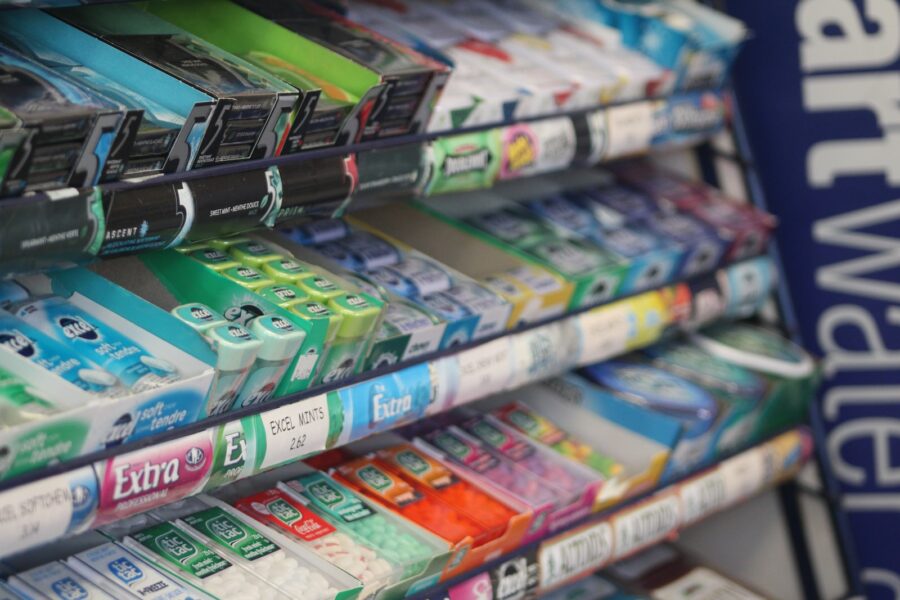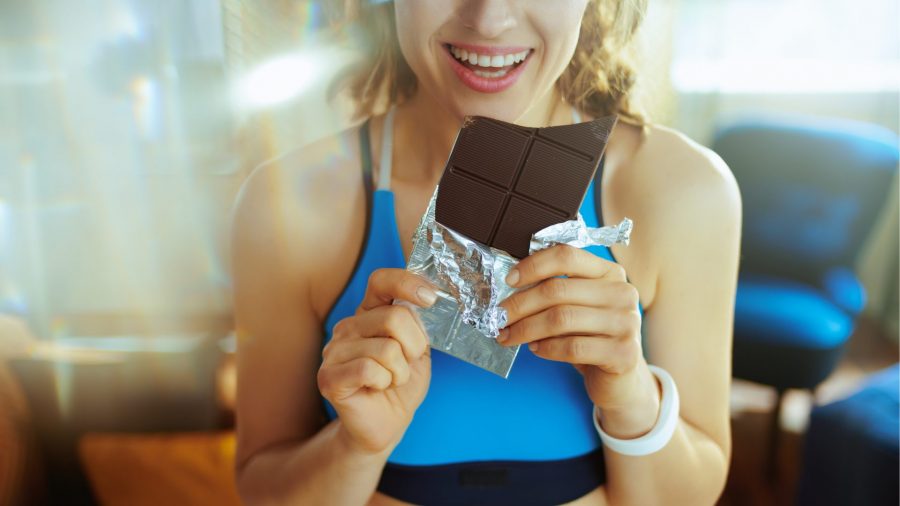If you have a difficult time starting your day unless you’ve had your morning cup (or three) of coffee, you’re not alone. Roughly 90 percent of Americans consume caffeine regularly, according to the United Brain Association, and it seems like people will find just about any way to get it.
That daily quest for caffeine has stretched into the chewing gum category.
Caffeinated chewing gum isn’t entirely new, but it’s gaining attention after Rev Energy Gum recently raised $6 million to expand its retail presence, according to Forbes. Rev Energy offers four different flavors and has between 60 mg or 100 mg of caffeine, depending on the offering.
“In today’s fast-paced society, there’s a high demand for caffeine among people because it allows for quicker awakening, better focus, and improvement in daily performance,” Dr. Rosmy Barrios, MD, medical advisor at Health Reporter, told The Food Institute.
The chewing gum aisle features multiple options featuring caffeine these days. Military Energy Gum, Plow On Energy Gum and Bold Gum all pack a punch with 100 mg options, for example.
Meanwhile, other brands like Jav Gum, Zenergy Gum, Rum Gum and Alert 5 Gum all offer between 40 and 70 mg boosts, Caffeine Informer noted.
Caffeinated chewing gum offers a quick energy boost to those suffering from an afternoon lull or don’t have time to run to a coffee shop during work.
“Caffeinated gum is unique in that, to get a dose of caffeine, there’s no need to consume any additional liquids, such as coffee or energy drinks, which often can irritate the stomach, be calorific, or contain a lot of sugar,” Dr. Barrios said. “I believe this is a factor contributing to the popularity of caffeinated gum.”
Such gum does, however, have drawbacks. Caffeinated gum can be hazardous to children, especially considering it’s a product they might not expect to feature caffeine. Taking that into consideration, Barrios offered a few words of warning:
“One of the dangers is that using this gum poses a higher risk of experiencing caffeine overdose symptoms,” the doctor said. “When we consume coffee or other drinks, we may feel a sense of satiety, which can deter us from wanting to drink more. In contrast, with gum, we may not feel that limit.”









